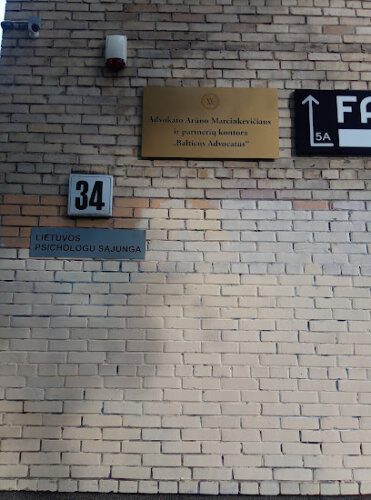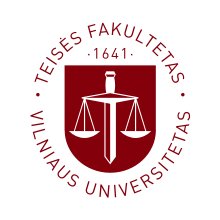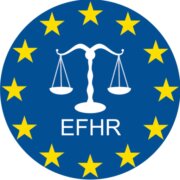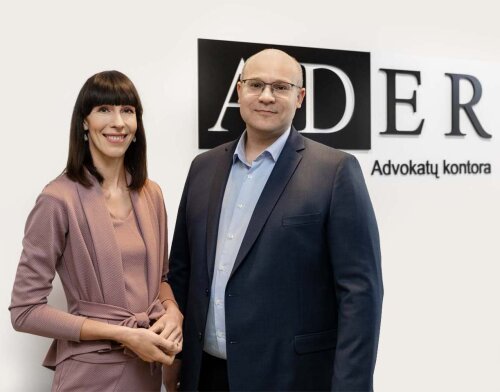Best Education Law Lawyers in Vilnius
Share your needs with us, get contacted by law firms.
Free. Takes 2 min.
List of the best lawyers in Vilnius, Republic of Lithuania


About Education Law in Vilnius, Republic of Lithuania
Education Law in Vilnius, the capital of the Republic of Lithuania, encompasses the regulations, policies, and legal frameworks that shape the educational system. It governs various aspects, including the rights of students and teachers, administrative responsibilities of educational institutions, and the implementation of national educational policies. The law ensures that every individual has access to education and is treated fairly within the educational system. In Lithuania, educational matters are overseen by the Ministry of Education, Science and Sport, which establishes guidelines and standards that schools and universities must adhere to.
Why You May Need a Lawyer
Individuals may require legal assistance in several situations related to Education Law. Common scenarios include disputes concerning student rights or disciplinary actions, issues related to the misapplication of educational policies, or when facing discrimination within the educational environment. Legal expertise may also be necessary for understanding educational contracts, resolving conflicts over special education needs, or navigating the complexities of educational reform and compliance with legal standards. Lawyers specializing in Education Law can provide valuable guidance and representation in resolving these and other related issues.
Local Laws Overview
In Vilnius, Education Law is shaped by both national and local legislation. Key aspects include the Law on Education, which establishes the fundamental principles and organizational structure of the educational system in Lithuania. Important provisions focus on ensuring accessibility, equality, and quality of education. The law also outlines teachers' rights and responsibilities and regulates the administration of educational institutions. Another significant piece of legislation is the Law on Vocational Education, which addresses the provision of vocational training and qualifications. Furthermore, international agreements and EU directives often influence Lithuanian Education Law, reflecting broader standards and commitments.
Frequently Asked Questions
What rights do students have under Lithuanian Education Law?
Students have the right to free public education, respectful treatment, and a safe learning environment. They also have rights concerning participation in school governance and protection from discrimination.
Are there specific laws protecting teachers' rights in Lithuania?
Yes, laws protect teachers' professional rights, including fair remuneration, working conditions, and freedom from discrimination or unjust dismissal. Teachers also have a right to participate in decisions affecting the education system.
How can disputes between students and educational institutions be resolved?
Disputes can be addressed through internal school grievance procedures, and if unresolved, may be escalated to higher educational authorities or legal action if necessary.
What legal provisions exist for children with disabilities in education?
Lithuania ensures inclusive education for children with disabilities. Educational institutions are required by law to provide appropriate resources and support to facilitate their learning.
How does Lithuania ensure equality in education?
The law mandates non-discrimination on the basis of gender, ethnicity, disability, or socioeconomic status, promoting equal access to quality education for all students.
What is the legal age for compulsory education in Lithuania?
Education is compulsory for children from the age of six or seven to sixteen, covering primary and lower secondary education levels.
Are there specific regulations for private and international schools?
Yes, private and international schools must adhere to national educational standards and receive accreditation from the Ministry of Education, Science and Sport.
What are the legal requirements for homeschooling in Lithuania?
Homeschooling is legal but requires registration with a local educational institution and adherence to national curriculum standards to ensure adequate education.
Does Lithuania recognize foreign educational qualifications?
Yes, foreign qualifications are recognized, but they may require a formal assessment and validation process through the Lithuanian Centre for Quality Assessment in Higher Education.
What resources are available for educational complaints and appeals?
Students and parents can approach the Ministry of Education, Science and Sport or the National Education Agency for complaints, appeals, and guidance on educational issues.
Additional Resources
Individuals seeking information or assistance with Education Law in Vilnius can contact the Ministry of Education, Science and Sport. The National Education Agency provides resources on educational standards and policies. Legal aid organizations and non-profits can be invaluable for free or low-cost legal advice. Additionally, the Lithuanian Bar Association can assist in finding qualified lawyers specializing in Education Law.
Next Steps
If you require legal assistance in Education Law, begin by identifying the specific nature of your issue. Gather all relevant documentation and evidence. Consider consulting a lawyer specializing in Education Law for an initial assessment. You can find legal professionals by contacting the Lithuanian Bar Association or exploring local law firms with educational law expertise. Early legal consultation can provide clarity and help you understand the best course of action available to you.
Lawzana helps you find the best lawyers and law firms in Vilnius through a curated and pre-screened list of qualified legal professionals. Our platform offers rankings and detailed profiles of attorneys and law firms, allowing you to compare based on practice areas, including Education Law, experience, and client feedback.
Each profile includes a description of the firm's areas of practice, client reviews, team members and partners, year of establishment, spoken languages, office locations, contact information, social media presence, and any published articles or resources. Most firms on our platform speak English and are experienced in both local and international legal matters.
Get a quote from top-rated law firms in Vilnius, Republic of Lithuania — quickly, securely, and without unnecessary hassle.
Disclaimer:
The information provided on this page is for general informational purposes only and does not constitute legal advice. While we strive to ensure the accuracy and relevance of the content, legal information may change over time, and interpretations of the law can vary. You should always consult with a qualified legal professional for advice specific to your situation.
We disclaim all liability for actions taken or not taken based on the content of this page. If you believe any information is incorrect or outdated, please contact us, and we will review and update it where appropriate.













